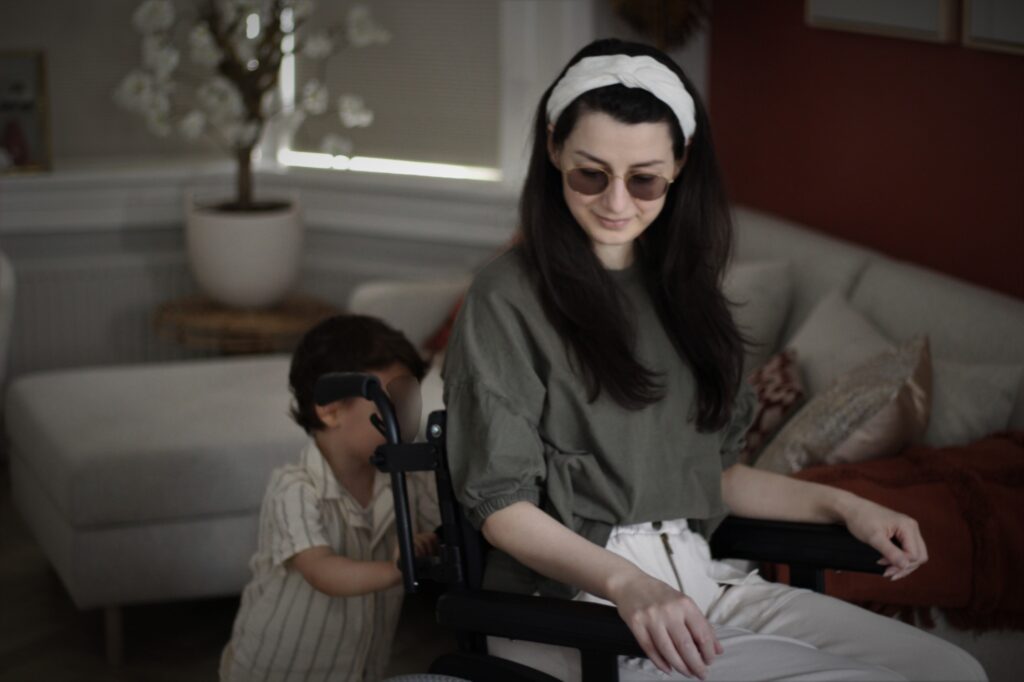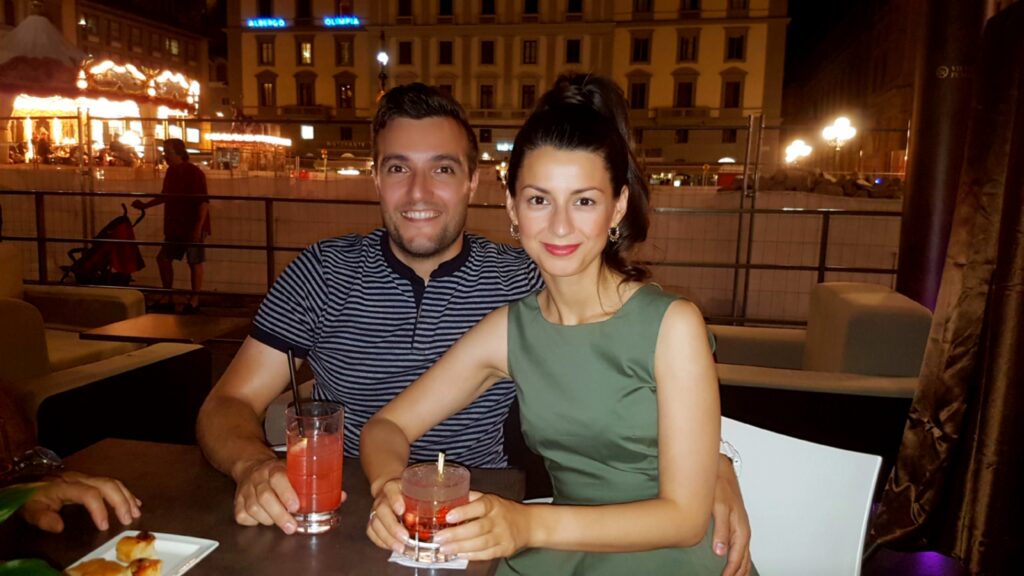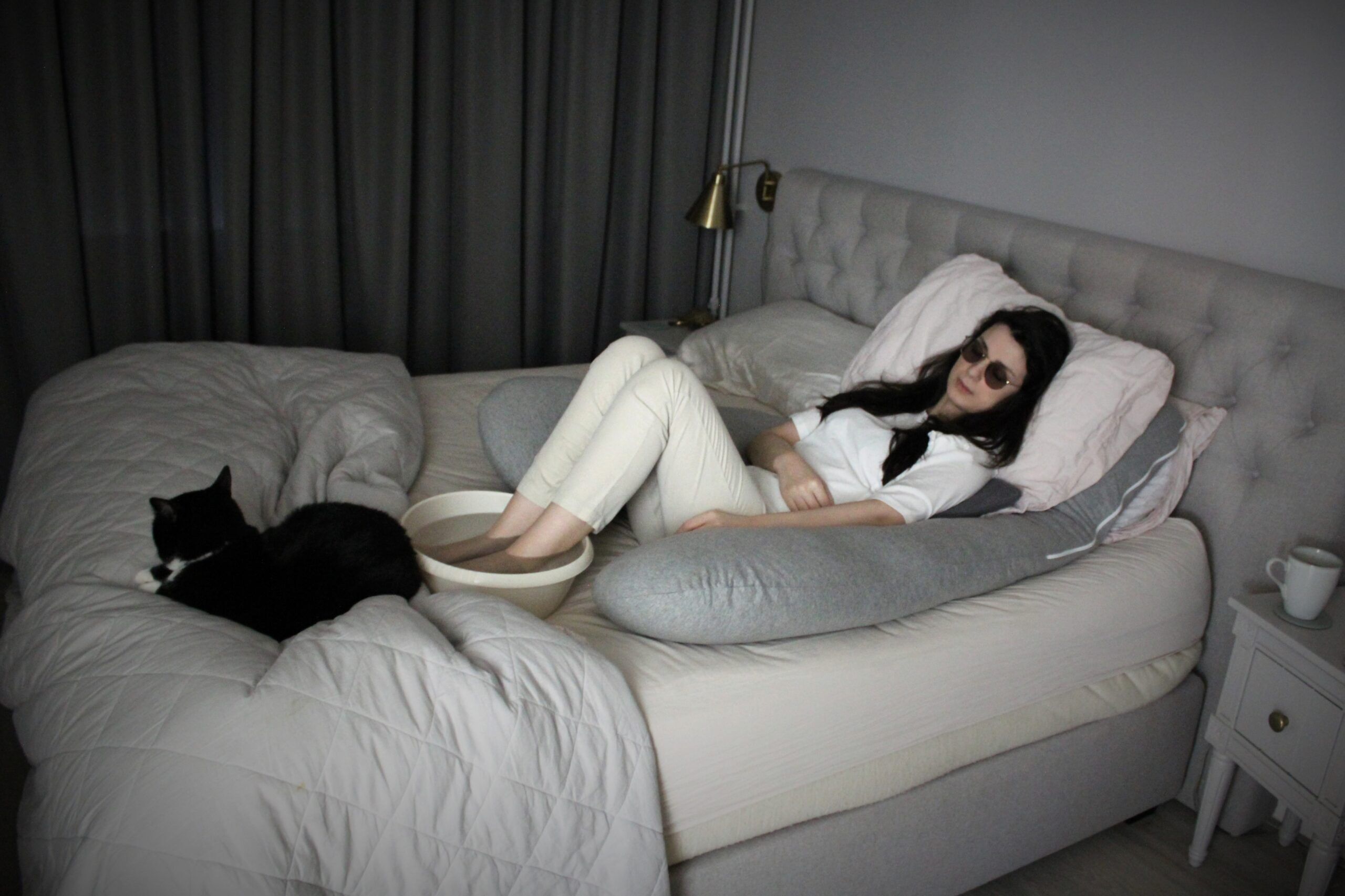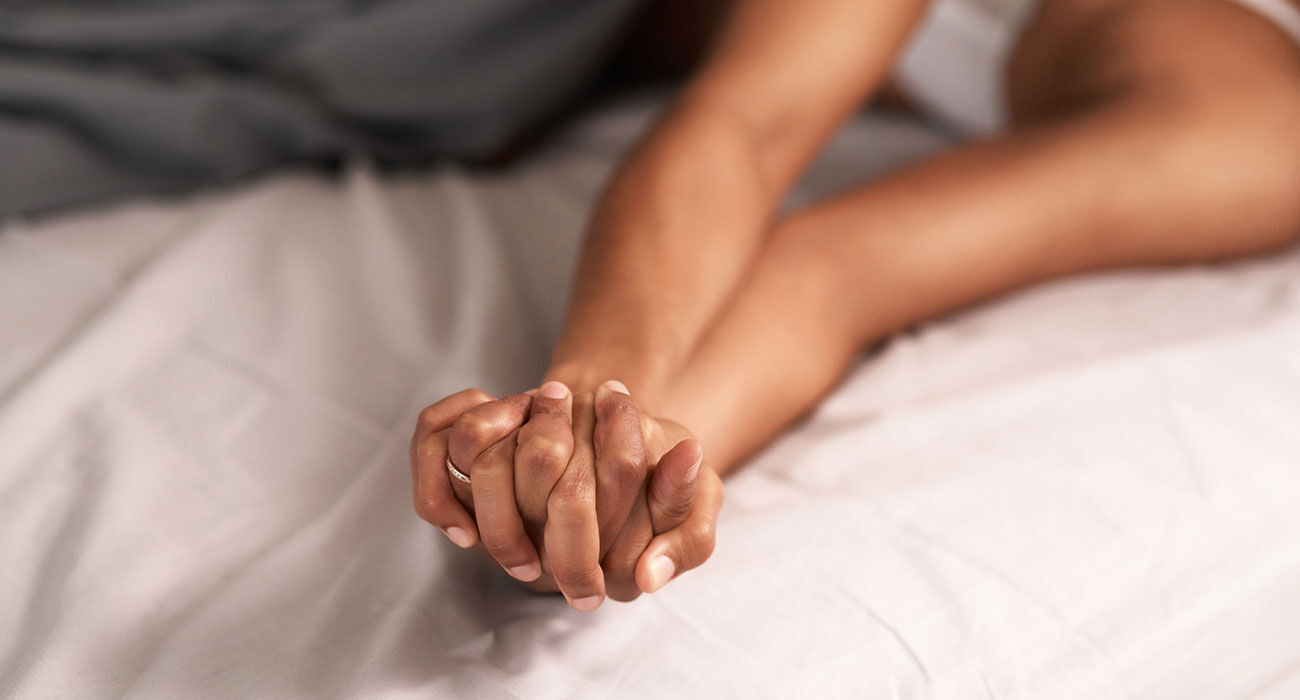Carli became seriously ill due to her delivery
Carli and Dario were overjoyed with a positive pregnancy test four years ago. But that joy was short-lived, because things went wrong during the pregnancy: Carli had extreme morning sickness (HG) and developed sepsis during childbirth, a life-threatening inflammatory reaction, which made her seriously ill.
Carli, 37, spends her days in a dark room, in constant pain and unable to tolerate light or sound. Moments that are self-evident for many parents, such as playing, cycling or dancing with your child, are not possible for Carli. Her husband Dario, who takes care of his wife and son full-time and also works, talks about this dire situation and the fundraising campaign that friend Eveline started to give Carli back a part of her life.
Contents
Extreme morning sickness
For nine months, Carli had to deal with hyperemesis gravidarum (HG), Also known as extreme morning sickness. The joy of the pregnancy was short-lived in 2018, because Carli became very ill. “She couldn’t keep anything down, not even water, and soon ended up in the hospital on an IV,” says Dario. “We hoped her health would gradually improve, but it didn’t. She became dehydrated and malnourished and was tube fed for more than four months. On the one hand we were looking forward to the delivery, because that would also mean the end of HG, but on the other hand we were worried. How was she supposed to endure that birth? Still, several specialists advised her to give birth naturally, so we relied on that.”
Life-threatening sepsis
It went wrong during the induction of Carli’s delivery. A balloon catheter, which helps ripen the cervix, caused an infection in the uterus, leading to sepsis, a life-threatening inflammatory response of the body that damages your organs. “Her condition and that of the baby deteriorated rapidly and I was very concerned. Doctors didn’t realize it was sepsis, we only discovered that nine months later. Because it took 30 hours for the doctors to act, a lot of damage has been done in her body that can no longer be repaired.” Her body was unable to perform a natural delivery, so a cesarean section was scheduled for a few days later. But when her waters ruptured spontaneously a few hours later, an emergency C-section was too risky because of the infection. “Carli gave birth to our son with everything she had in her. After that there was nothing left of her, she was a shadow of herself.” Carli was in bad shape and could barely enjoy her newborn son. “The months after giving birth she remained exhausted, dizzy, frequently passed out and had a lot of pain in her muscles, nerves and joints. She has never been able to walk around with the pram. After such a very unpleasant pregnancy, it felt very unfair…”
No improvement
The fact that Carli felt so bad in the months after the delivery could be explained: after all, she had to recover from HG and the violent delivery. But when her situation did not improve, and the complaints even seemed to be aggravated by rehabilitation at home, Dario and Carli sounded the alarm. “When we heard that it was sepsis, it was very confronting, but everything fell into place. Despite the mixed stories of recovering from sepsis—some people make a full recovery, others sustain residual damage or don’t recover at all—we were hopeful. We hoped that she would fall into the first group, but unfortunately she was not doing better. Carli can do very little. A rehabilitation doctor once compared her situation to charging a mobile phone. When fully charged, it can last for a day. When Carli has had a good night’s sleep, which is quite rare, her battery is charged to 4 percent. And she has to do that for a day.”

In a dark room
Carli is constantly nauseous, extremely tired, has a lot of nerve pain and can barely tolerate light, sound and smells. Unfortunately, there is little to no chance of improvement. “She spends 99 percent of the time alone, in bed, in a dark room with blackout sunglasses on. She uses the little bit of energy she has to spend time with us. Those moments are very limited, but they also give her energy and positivity. We have now found a way to deal with the limitations. For example, the three of us eat in bed. Carli comes down once a week out of necessity, when she has to go to the hospital or because her bedroom needs to be cleaned.” Going down, even with a stairlift, is a battle of attrition. “By the time she’s down, her battery is dead.”
Other home
The house in which the family now lives is not one-storey or wheelchair-friendly. They therefore looked for a more suitable home, in which Carli can get out of her bedroom more easily and she can be more part of family life. After a lot of disappointments, they were drawn for a bungalow construction project: finally a bright spot in their lives. Everything seemed round, but because of inflation, mortgage interest and the sky-high prices of building materials, the house is suddenly no longer financially viable. Friend Eveline started a fundraising campaign and is doing everything she can to make the plan possible. “We are very grateful to her for that. This home would make Carli’s life so much more bearable.”
In addition to their own investment, 95,000 euros are needed to build the adapted home. The crowdfunding counter now stands at almost 45,000 euros. But time is of the essence: the target amount must be collected by Friday 23 September at the latest, otherwise construction will not go ahead. “The chance that we will achieve that is small, but if it doesn’t work out, we use the money collected to adapt our current home as well as possible. I hope people will take the time to read our story, share it and donate if possible. Any help is welcome.”

Positive moments
Despite the terrible circumstances in which Carli lives, she remains positive. “She is very strong, also mentally, and I admire that about her very much. There are moments when she is really disappointed with what her life looks like, because she wants to do so much more with us, with our son, but she mainly focuses on what is still possible. Small moments of happiness, such as eating together or listening to a book, are very important to us. And luckily we still make each other laugh. As a partner I do everything I can to give her those positive moments, because she fully deserves that. I am incredibly proud of her.”
Do you want to donate something? You can do that on this page. It explains exactly what Carli and Dario want to use the money for, even if the target amount is not reached.



